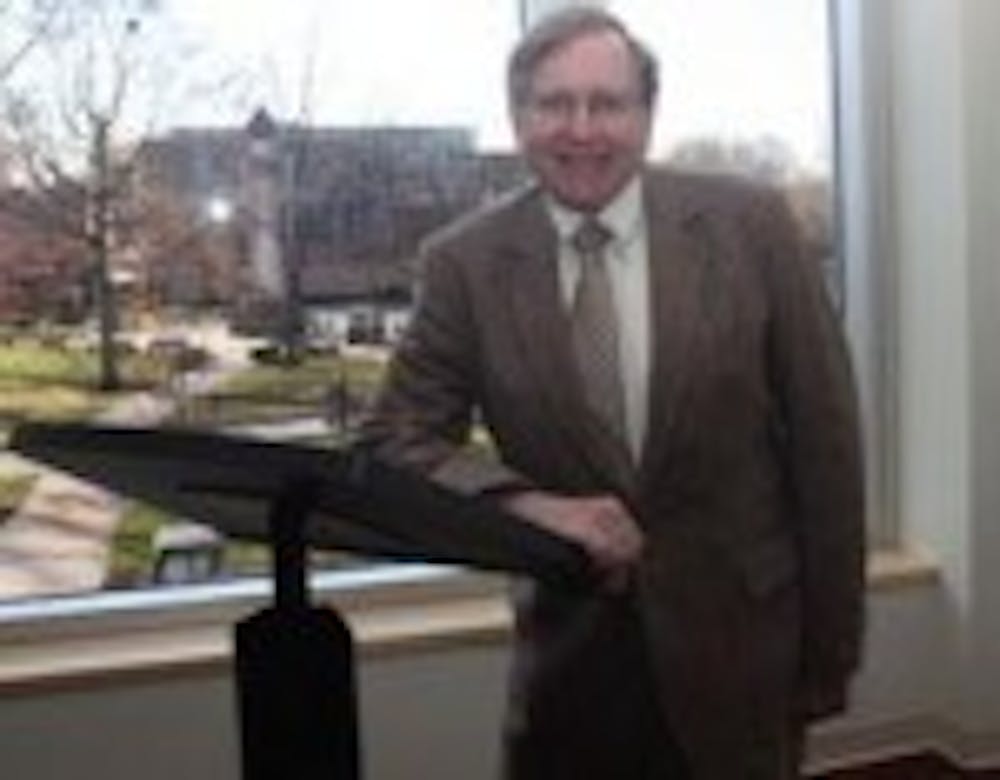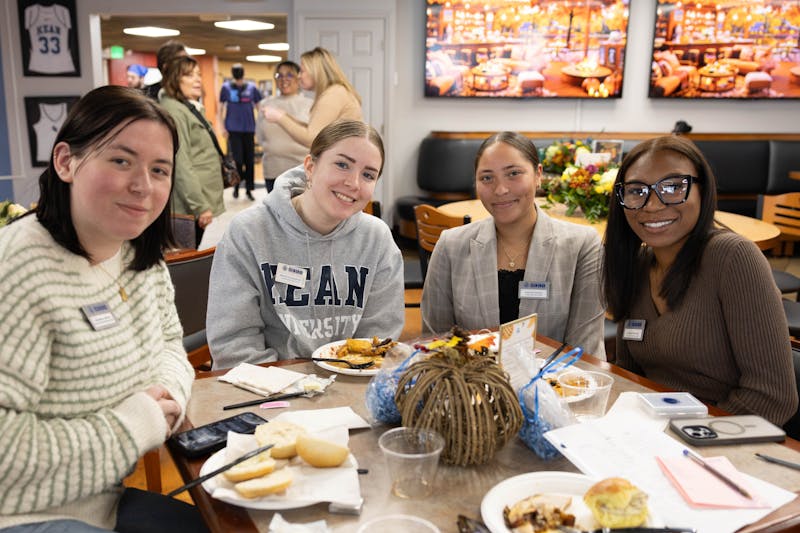Birthed from the vision that Kean University's president, Dr. Dawood Farahi, had several years back to make his students more aware of the violence and atrocities existent in the world, the new Human Rights Wing will open its doors early in the upcoming Spring semester. Given the president's background shaped around the events of his own personal escape from a country enveloped in violence, his aspiration is to educate others about the realities of human rights violations. The new addition to the campus is located in the Nancy Thompson Library as a $15 million expansion to the facility and is responsible for the more recent facade reconstruction. The new wing will feature a 1,700 square foot gallery, bigger even than that of the Burger Gallery and James Howe gallery. Exhibits within the gallery will periodically change with each new pressing issue of human rights awareness and achievements. The pressing urgency for education began in early 2008 when Kean University hosted its first International Conference for Human Rights entitled "Darfur: The First Genocide of the 21st Century". The critical assembly invited two-time Pulitzer Prize winner and New York Times journalist, Nicholas D. Kristof, to come speak about the reality of the inhumane acts occurring within Darfur. Now, through the success of its origin combined with the perpetual need to combat violations against the 30 universal human rights adopted in declaration by the United Nations in 1948, Kean University will continue its strong philanthropy and host the third annual conference on January 29, 2010.
In the more recent past, the Human Rights Institute have gravitated its focus primarily on international issues with such events as the Bangladesh 1971: Addressing Claims of War Crimes, Genocide, and Crimes Against Humanity conference. The third International Conference on Human Rights, Combating Hatred, will focus on hate crimes and take a more domestic approach to activism than previously featured in past conferences. The keynote address will be delivered by Morris Dees, founder and chief trial counsel for the Southern Poverty Law Center in Montgomery, Alabama; following Dees' address will include speeches on Cyberhate and Bias Crimes from speakers Mark Weitzman and David L. D'Amico, respectively.
For students who look to have a more hands-on and constant experience with the humanitarian selections available on campus, a possible recourse is enrollment in the Interdisciplinary course, Holocaust, Genocide, and Modern Humanity registrable as ID 1800 on KeanWISE. The pilot course offers a past and modern exploration of various aspects, including political and social influence, leading up to what creates events that are violations against universal human rights. The class offers students the chance to pay attention to witness testimonies from Holocaust survivors, visit the Holocaust Memoriam Museum in Washington, D.C., and be able to stay in contact with students from the once genocide stricken country of Rwanda via an online forum. The anticipated international connection is a new addition for the Spring 2010 semester.
Dr. Dennis Klein, director of the Jewish Studies program and professor of history, is one of four professors scheduled to teach the available ID 1800 courses for the upcoming semester. Dr. Klein addresses the need for students to take more than just information from the classroom. "I expect my students to question," says Dr. Klein. "It needs to be questioned why the world remains so silent when responding to genocide. You just expect there to be immediate action, but there is silence." While Dr. Klein admits that each class will differentiate according to the specific professor teaching the course, the over-all experience should surface the same awareness, advocacy for resolution, and is strongly supported by colleague collaboration among the professors. The instructors for the other sections for next semester are Dr. Vivian C. Rodriguez, Dr. Joseph J Preil, and Dr. Keith D. Nunes; Nunes is also the program coordinator for the Nathan Weiss Graduate College's Master of Arts in Holocaust and Genocide studies option. Despite the ID 1800 course not being mandatory, the incentive of the Human Rights Institute is that the Kean Community will be among the first institutions that offer this type of course to all of its students.
As the philanthropy for human rights expands within the Kean community, one can only question its direction for the future. Dr. Henry Kaplowitz, director of The Human Rights Institutes, proudly recollects the past accomplishments of the conferences and suitably looks ahead with confidence. Among the upcoming issues that the Human Rights Institute will cover is that of biomedical and health issues. "Science is being abused," says Kaplowitz sternly. "There are ethical considerations that science must abide by."
More than anything, Kaplowitz stresses the importance of the education that can come of these conferences. "That education transcends," he continues. "We want instructors to incorporate humanitarian ideals into their curriculum. Some professors have already jumped on board.mathematics is being used to develop better solar cookers for the women and families in Darfur. Imagine, Kean University's own successful model of this tool that changes and saves so many lives." Here at Kean, it is possible to imagine such a feat, and the Human Rights Institute is insuring that the university has every opportunity to utilize education for the sake of humanity its entitled universal rights.
Speaking For Universal Rights
An in-depth look into the Human Rights Institute's future





